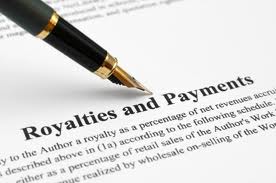Numerous writers have embraced e-book technology as a way to independently publish their books, reach new markets, and earn greater royalties for their work. Retail giant Amazon has long dominated the market for authors looking to self-publish their e-books, but it has quickly been followed by other e-book publishers, such as Smashwords, Lulu, and BookBaby.
Amazon and Smashwords have gone head-to-head over the last several years, battling it out as the preferred platform for self-published authors. If you are considering where to self-publish your e-book, here’s what you need to know about how Amazon and Smashwords compare.
Market Access
Amazon still dominates the market for self-publishing and e-books. However, depending on your goals for your book, it is not always the clear winner.
Amazon may have a larger market share, but it publishes specifically for the Kindle. Though there are apps that allow the use of Kindle material on other readers and devices, the material is marketed primarily for Kindle users.
Smashwords allows you to publish your book in any format (ePub, iPad, Nook, Mobi etc) to use on any reader – even the Kindle. However, if you use Smashwords to distribute your content to Amazon, you will lose a portion of your royalties to pay for the middle man. There are no such extra fees to publish in other formats. Smashwords will also automatically format your text once you upload it.
Ease of Access
When you upload your book to Amazon, it becomes available in the market within hours.
However, reports of conversion times vary for Smashwords. Site owners previously reported an average time of 30 hours, but now the site claims to convert in only a few minutes. Many users report that uploads to Smashwords can take much longer, from several days or even months to appear in some marketplaces. One user complained that it took several weeks to get a manuscript approved and another five months for a book to show up on Kobo. Smashwords itself reports that there can be some delays once books are shipping to other marketplaces. It is also worth noting that your book is not instantly shipped to these other distributors, but is done so on a weekly schedule.
Royalties
The amount you receive for each sale varies greatly between the two sites.
Amazon pays author royalties of between 35 percent and 70 percent, depending on how the book is priced and the other options. To receive the 70 percent royalty rate, books must:
• Be priced between $2.99 and $9.99
• Be limited to sales in certain countries
• Must cost at least 20 percent less than any physical version of the book
Delivery fees will be deducted from the 70 percent royalty, though not from the 35 percent royalty. Books sold under the 35 percent royalty can be priced from $0.99 to $200 and can be sold in any country. For a complete list of rules, please visit Amazon here.
Smashwords pays its writers a flat royalty fee of 85 percent of net sales (after the transaction fee) made directly through Smashwords or Stanza. The rate may vary if sales are made through other outlets. Transaction fees can include payment processing fees, affiliate fees, retailer discounts, costs for erroneous transactions, credit charge-backs and other associated fees.
 |
| image via http://www.couponaudit.com |
Discounts and Promotions
Sometimes you have to sweeten the deal to make a sale, offering discounts and even free copies to spread word of mouth. Amazon does not allow its writers to offer discounts or free copies. There is a Kindle gift system in place, but you have to pay for your own content. If you want to send out numerous review copies directly from the site (which will be seen as more trustworthy content, rather than coming as an attachment from your e-mail), this could get very expensive.
However, you can offer any kind of discount that you choose through Smashwords. This is especially useful if you want to provide review copies, give gifts to family and friends, or encourage more sales through a limited promotion.
Reviews
Any user can review any book on Amazon. All you have to do is sign in, write the review, and submit it. However, only users who have purchased a book can review it on Smashwords. This is problematic if you want to ask friends or family members to review your book – or if you want to send promotional copies to readers, blog followers, or even fellow authors. You can get around this restriction by offering a promo code to get the book for free on Smashwords, but it’s an extra step that Amazon doesn’t make you take.
Many authors find that both Amazon and Smashwords offer them a valuable marketplace in which to sell their books. Most choose to make their books available on both markets to supplement the shortcomings of each and to strengthen their overall marketing efforts.
What are your thoughts on Smashwords vs. Amazon? Do you prefer one over the other? Have you sold more books on one over the other? Tell us your thoughts in the comments!
About the author
Sarah Rexman is the main researcher and writer for www.bedbugs.org. Her most recent accomplishment includes graduating from Florida State, with a master’s degree in environmental science. Her main focus for the site involves anything pertaining to bed bug extermination.






I’ve sold one copy of my book since posting it on Smashwords two years ago. Sales through its distribution network (iStore, B&N, Kobo) have begun in the last few months but are still pitiful. While my book is far from a best seller on Amazon, at least it’s selling with some regularity.
There’s so much free content on Smashwords (even I have two free short stories there), that I have to wonder if it’s having a negative impact on those who are trying to sell their work. My free short stories have been downloaded several hundred times each.
Has anyone else had that experience with Smashwords?
I tried Smashwords a year ago with almost the exact same experience DED has correctly pointed out. I have put six more titles up this year to try once again. I have sold a few copies but, far and away, Amazon is better for sales.
Also, coming from an IT background of over 30 years I found the Meatgrinder and the formatting necessary for Smashwords onerous. I can use Mobipocket Creator to create a .prc file to upload to Amazon which will include the cover art, a linked table of contents for my collection of short stories, and the stories themselves. Straightforward. Read through the style guide for Smashwords. If you’re not well versed in Word, or an IT person, you’ll probably struggle.
I expect Smashwords to mature. It’s certainly possible to write software to take a Word document or even a PDF file, and convert it to multiple formats. It may not be easy but it is possible. Imagine an author getting a PDF or Word document exactly the way they want it then upload it to Smashwords. Simple. They’ll do it eventually or someone else will.
I do wish Smashwords offered a way around the Meatgrinder for those who know what they are doing. But I also see that, despite the delays in the system, the advantage to Smashwords is that it distributes to all the major players, and I only have to make one upload. I see it more as a distribution engine than a sales generator.
DED, some of your information is outdated. Smashwords does convert AND display uploads on Smashwords in minutes, not days like at Amazon.
Your information about shipping delays with Smashwords is somewhat correct. It does take a week or 2 for a new ebook to appear on Apple, Barnes & Noble, Sony, Kobo, and other retailers.
Your statement “Transaction fees can include payment processing fees, affiliate fees, retailer discounts, costs for erroneous transactions, credit charge-backs and other associated fees.” also applies to Amazon.
Amazon also charges authors a ‘delivery fee’ based upon the file size of an ebook, something Smashwords doesn’t do.
I would have enjoyed your article had it been more balanced and up-to-date.
Ted, are you replying to my comments or the author of this article, which isn’t me but Sarah Rexman.
At no point did I comment on any of the things you’re talking about.
This comment has been removed by a blog administrator.
This comment has been removed by the author.
as far as i’ve found in a quick look, you can publish direct through iTunes (formatted their way most likely) and Nook [B&N]. Looks like Smashwords could be good to do abridged versions for sampling (to many potential buyers) and pull down the samples when you get up and running.
eventually the smashbooks business model will earn them enough money to go it alone as an independent platform – SW will make an app, an eReader, and become exactly like the big players anyway (or else the old-fashioned buy out/merger).
as for the person in the FB comments section who said KDP formatting is clunky i just did my first eBook using Word to create the file (copy/pasting my original manuscript and redoing the headings a normal print), using the same cover art i used for the paperback done through Create Space – you can also use your own pdf for the cover.
smashwords seems a little blunt in the formatting too – at least KDP can read a pagebreak!
The real benefit with Smashwords is the ability to get distribution into all the major channels in one place. The meatgrinder there is a lot more strict on what you load up, and the Amazon KDP a little more forgiving. Ideally, in light of the above article, I think it is less a case of one or the other, but using both platforms together.
First, IMO it is important to point out that there is no need to choose, you can use both Smashwords and Amazon. Amazon is clearly the larger platform…for the time being.
As an author, you can also directly submit to B&N vis PubIt.com and Kobo via Kobo Writing Life.
Smashwords has implemented numerous updates since this article was first published:
1) Much faster processing. The Meatgrinder normally gets books up on the site in a couple of hours at most. Distribution to the premium sites takes longer because Smashwords can only submit periodically.
2) Smashwords now takes direct submission of Epub files, however it does not translate the epub files into other formats (mobi, PDF, RTF, etc.)
I believe Smashwords is a great option for authors for a couple of simple reasons:
Higher royalties. 85% of NET, which translates typically to 50-75% of retail price depending on which vendor your customer bought through. Compared to 70% of retail (if $2.99-9.99 in US, Canada, UK, much of Europe) or 35% of retail if below $2.99 or bought through many international Amazon stores.
Easier access: With Smashwords, readers from around the world can just log in, buy (with major credit card or PayPal) and instantly download in any format. You can reach any reader on the planet and get that same high royalty rate.
Amazon only sells in certain nations, has lower royalty rates in many of them and you MUST be using an Amazon app or program or use a specific, limited browser for the Cloud Reader, which does NOT allow downloads.
Smashwords is clearly a great choice for a customer who wants to just buy, download and read on the device of their choosing in their format. This is not just a “freedom” issue — but rather, by Smashwords not using DRM, you can be assured that you will always have your books and be able to use them in the way you want.
This is a fantastic website, could you be interested in going through an interview concerning just how you made it? You can visit my site.
sell your book
As an author / illustrator of children’s cat books, Kindle handles images reasonably well, whereas Smashwords has a 10MB file size limit which is useless.